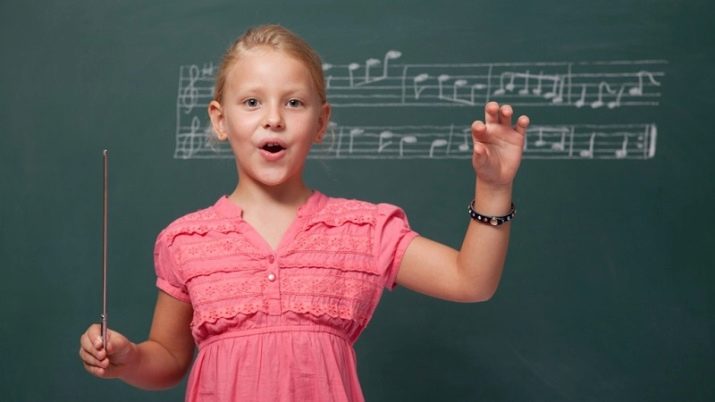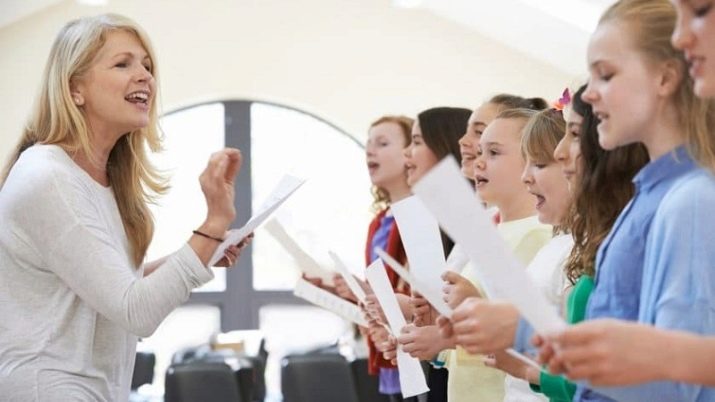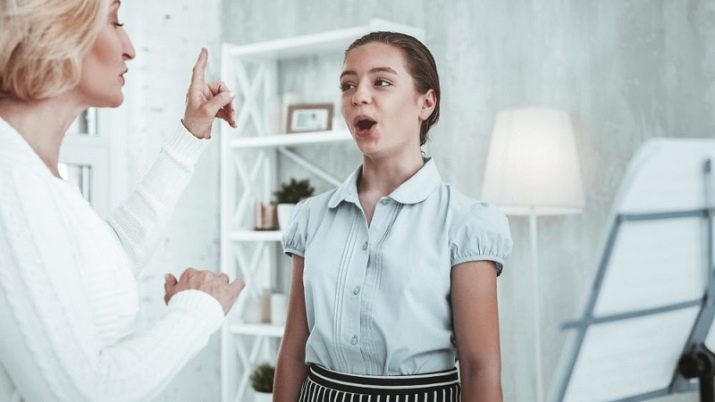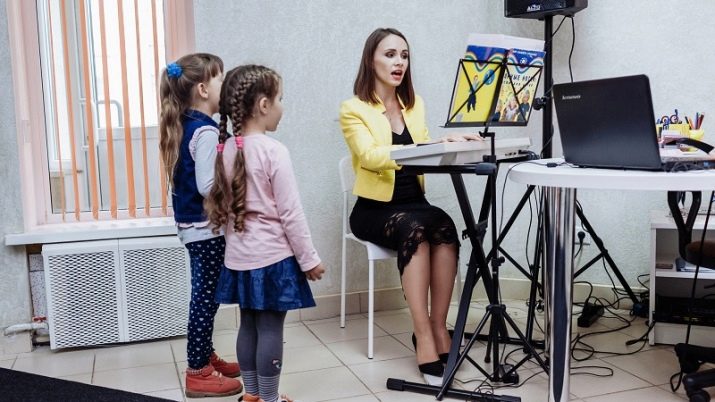A vocal teacher is a profession that is in great demand in modern society. Singing teachers are required both in private studios and in state creative clubs. In our article, we will dwell on the features of the profession, tell you what skills and knowledge a good teacher in vocals should have, what are his duties, rights and responsibilities.

Features
Each profession has its own characteristics, and the specialty of a teacher of singing is no exception. The love of art, the desire to devote himself to pedagogy, the belief that without knowledge of real music it is impossible to become a harmonious person and sincere dedication to your work - All these qualities are inherent in the teacher-musician. The vocal tutor not only teaches the correct way to output notes, he also conducts educational work, forms the aesthetic taste of his students, and promotes the formation of ideals. That is why A good singing teacher is more than just a teacher who knows the basics of his subject well. This is a gifted person in the highest sense of the word.
The work of a singing teacher is somewhat similar to the work of an actor. Both of them strive through creativity to awaken the feelings and thoughts of other people. However, the work of a singing teacher is much more difficult. The actor is only part of the theatrical performance, while the vocal teacher is one in three roles: he independently composes the script of the lesson, directs the production of numbers and directly teaches. A vocal teacher can give 4-6 lessons per day, moreover, they can be held with a wide variety of contingents both in age and in areas of activity.
It is unlikely that anyone will argue that the technique of teaching choral singing to first-graders will be significantly different from staging a number for a boy or girl 15-17 years old. Depending on the genre, academic, pop, opera and jazz vocals are distinguished; extreme vocals and folk singing are singled out in separate directions.
Most often, a vocal teacher specializes in one, a maximum of two areas, but possesses knowledge and skills in all areas.

Job responsibilities
The job descriptions of any vocal teacher include the following responsibilities. This teacher:
- conducts group or individual lessons with students in order to increase their vocal level;
- works with vocalists and soloists of choral groups on individual parts as part of the preparation of new productions, and also deals with new performers in the current repertoire;
- conducts vocal lessons using various techniques of teaching singing and voice skills;
- forms performers' skills in maintaining the stability of intonations, and also develops a sense of timbre;
- teaches students the skills of competent sound production and voice study within a certain tessitura;
- engaged in staging singing breath;
- forms the skills of recognizing by ear the basic components of a musical language (chords, tempo, instrumentation, tonality, rhythms, intervals);
- teaches the recognition of musical form by musical text or by ear;
- closely interacts with the director of concerts and musical performances;
- performs quality control of the performance of individual vocal parts.

Requirements
We draw attention to the fact that it is impossible to become a vocal teacher without a musical education. And if you plan to work in preschool / school institutions or teenage clubs, then you will also need pedagogical courses that confirm the skills of working with children.
Skills
The vocal teacher should know:
- the foundations of the current legislation regarding cultural and art issues;
- basic provisions of the Ministry of Culture of the Russian Federation, as well as any other normative acts of higher authorities;
- theoretical and practical foundations of vocal mastery;
- the history of vocal art and musical theater;
- theory and practice of methods of vocal pedagogy;
- the current repertoire of creative groups, as well as new works accepted for production;
- the specifics of working as a singing teacher in groups of different ages;
- the basics of "tuning" the voice apparatus;
- practice and theory of analysis of vocal mastery.

And, of course, any vocal teacher should have a wide knowledge of musical works and compositions that can be used for staging musical numbers.
A music teacher is required to:
- be able to introduce students to the performing arts, and do it in an interesting and accessible way for them;
- be aware of the musical preferences of their students and their vocal needs;
- Be a good organizer, provide your students with maximum creative activity and professional self-expression;
- to equip a study, equipping it with everything necessary for learning the basics of vocal skill;
- to be able to independently play any musical instrument;
- have the skills to use sound and video reproduction equipment.

Qualities
In order to become a good music teacher, it is important to have a set of necessary qualities. To work as a vocal teacher, you need:
- the ability to feel the musical repertoire, to design educational material;
- ability to emotional infectiousness, vivid expression of directed emotions;
- mastery of the full intonational gamut of speech, good plasticity, facial expressions and articulation;
- ability to explain, communicate your knowledge, share experience;
- ability to improvise;
- the ability to penetrate into the world of feelings and sensations of the student, the ability to feel his condition, a predisposition to empathy.
A vocal teacher should be an active, sociable person, always positive, with the ability to inspire optimism in others. It is important that he be tactful, delicate and restrained person. Not all students immediately understand what they want from them, and the process of “tuning” the voice itself is not fast. Therefore, the teacher will have to be patient, teach, without offending, gently and correctly guide the student in the right direction.
Well, of course, this person should be responsible, motivated by the result. It is the teacher’s activity that largely determines the achievement of goals in terms of improving vocal skills.

Rights and Responsibilities
The vocal tutor, like any other teacher, has his rights. He is allowed to:
- demand the creation of the necessary technical and organizational conditions for the implementation of pedagogical activities;
- get acquainted with the projects of the vocal school in the part that may, one way or another, relate to its activities;
- to receive in full the information necessary to carry out his job description;
- regularly improve their professional level and competencies;
- require students to complete their assignments as part of the curriculum.
At the same time, the singing teacher bears personal responsibility:
- for failure to comply with the approved job description;
- for non-compliance with the internal rules of the agreed schedule of classes with students;
- for any violations committed during the performance of professional activities in accordance with the criminal, civil or administrative codes of the Russian Federation;
- for causing material damage to the property of the organization or student;
- for misuse of authority.











